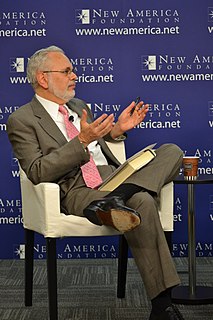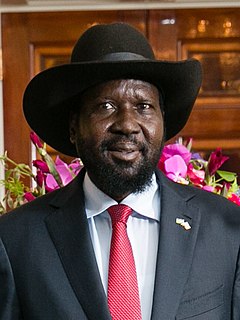A Quote by David Wessel
I think oil prices are down for two reasons. One is, there is a lot of supply. There is a lot of supply because the U.S. now produces a lot of oil and there is a lot of supply because the Saudis seem to want to produce a lot of oil, maybe to punish the Iranians and the Russians.
Related Quotes
I've been saying for a long time, and I think you'll agree, because I said it to you once, had we taken the oil - and we should have taken the oil - ISIS would not have been able to form either, because the oil was their primary source of income. And now they have the oil all over the place, including the oil - a lot of the oil in Libya, which was another one of her disasters.
Even if we were to sign peace today, the economic conditions in our country would not improve automatically because it will take some time to reach the level of oil production before the war and the oil prices are likely to remain low for some time as the supply of oil in the world is high and demand is low.
This morning, prompted by increasing concerns about terrorism, oil prices reached a record high as the cost of a barrel of crude is a whopping $44.34. Wow, it seems shocking that a product of finite supply gets more expensive the more we use it. Now the terror alert means higher oil prices, which oddly enough means higher profits for oil companies giving them more money to give to politicians whose policies may favor the oil companies such as raising the terror alert level. As Simba once told us: "It's the circle of life."
It's important to Russia to be able to attract capital and to attract technology to develop their oil fields, their oil and gas fields, many of which suffer from lack of access to the very best technologies. And it's also important, and this has been the US government's view to have diversification of supply, diversification of supply roots and, of course, diversification in terms of alternative energy.
I basically don't think that the way we do things is that dependent on one resource, such as oil. There can be different kinds of engines for cars. I think that solar heating, wind heating can substitute for a lot of uses for oil. I'd like to see those things happen because they are more sustainable in any case. But I do not think that running out of oil is not going to bother us that much. I think we have got to be rescued by something or we really are going down a slippery slope.
Almost all of the demand for oil that suddenly pushed prices up was speculative demand. People began to speculate not only in stocks and bonds and real estate, but also in commodities. The market went up for old tankers, which were used simply to store oil in. A lot of the oil was simply being stored for trading, not used.





























